The Rolls-Royce Ghost Series II glides into the DMs of the world’s 1 per cent
The Series II version of the ‘Baby Rolls’ has slight but sophisticated revisions to keep this hefty saloon in the targets of an increasingly idiosyncratic and individualist buyer
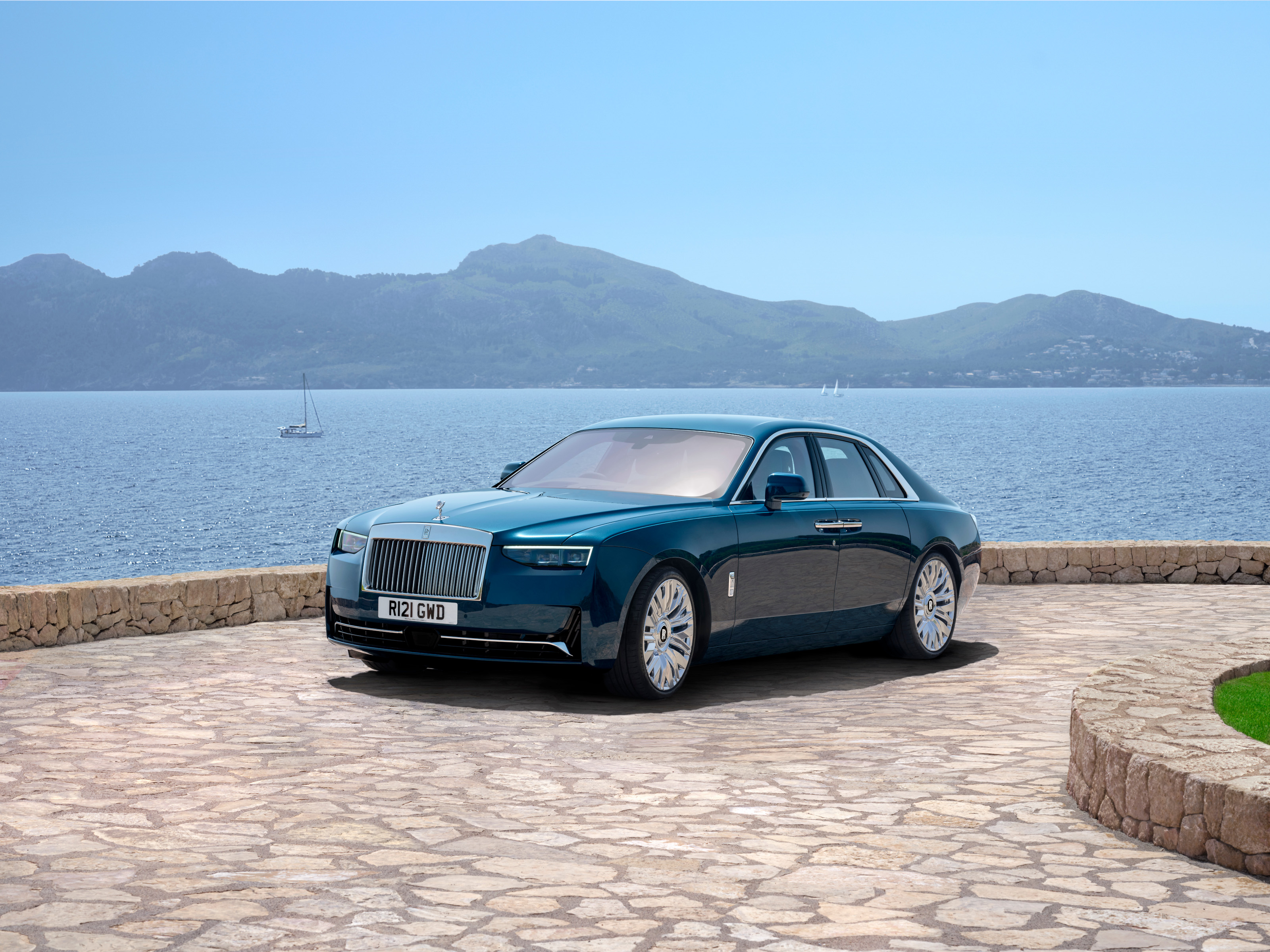
Rolls-Royce revealed its Ghost Series II to the world’s media at Château la Coste, choosing to align its newest model with the art, architecture and refinement of this famed Provençal bolthole. Ghost Series II is technically Second Generation Ghost Series II, and it treads the industry’s well-established grooves – launch a car, then facelift it several years in.
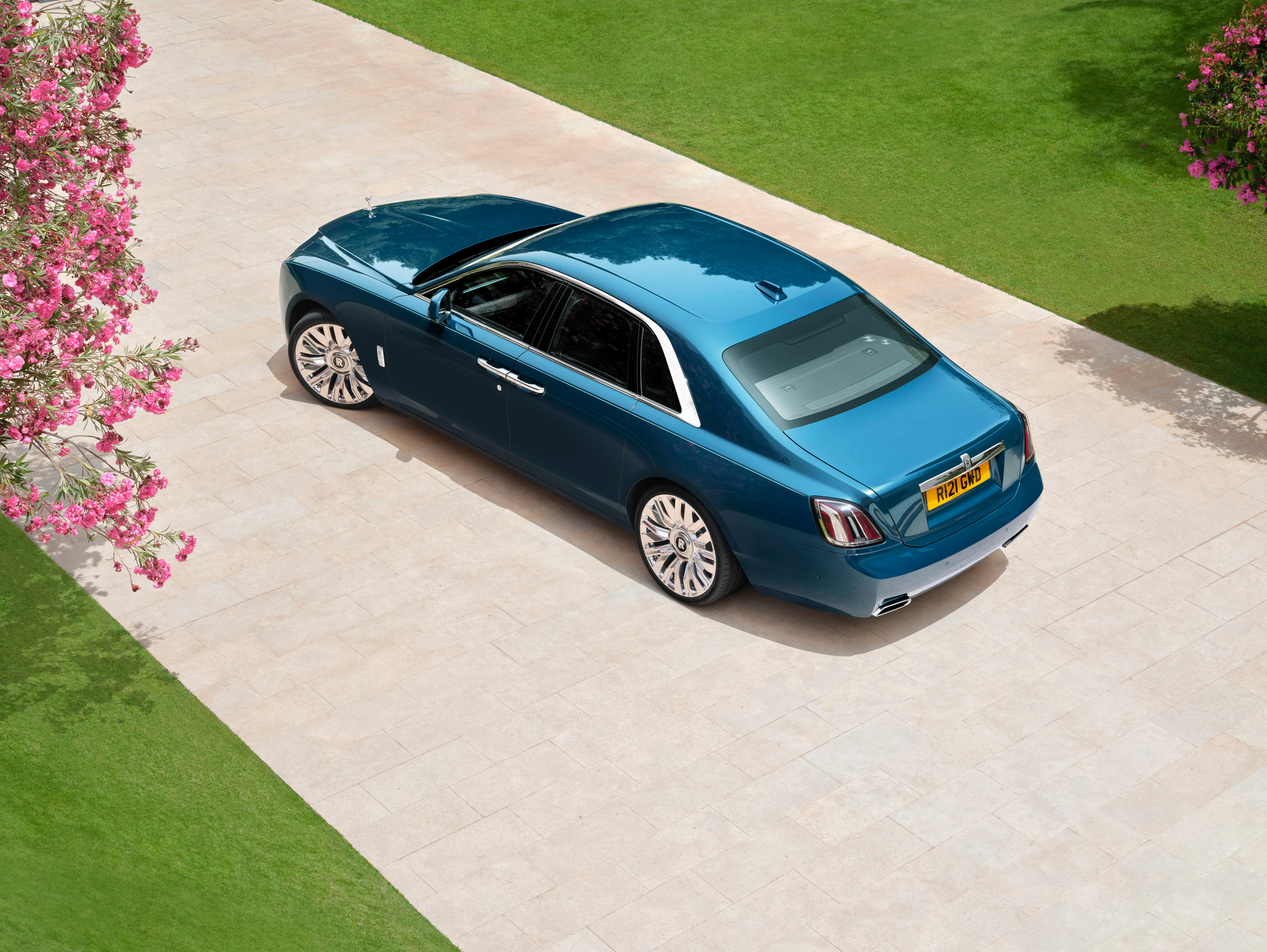
Rolls-Royce Ghost Series II
The first Ghost arrived in 2009 and got its Series II upgrade in 2014. That was followed a few years later by an all-new Ghost and now it’s time for that model to get a discreet nip and tuck, inside and out.
Ghost is the automotive equivalent of a first-rate Georgian townhouse
Although once heralded as the carmaker’s most technologically advanced model, Ghost has been usurped in that department by the all-electric Spectre. It’s certainly not its most outlandish model, for the Ghost was always intended as a slightly more subtle expression of power, wealth and status than the mighty Phantom flagship. The faintly boorish Cullinan is equally unretiring, while the Spectre is OTT is all sorts of other ways.
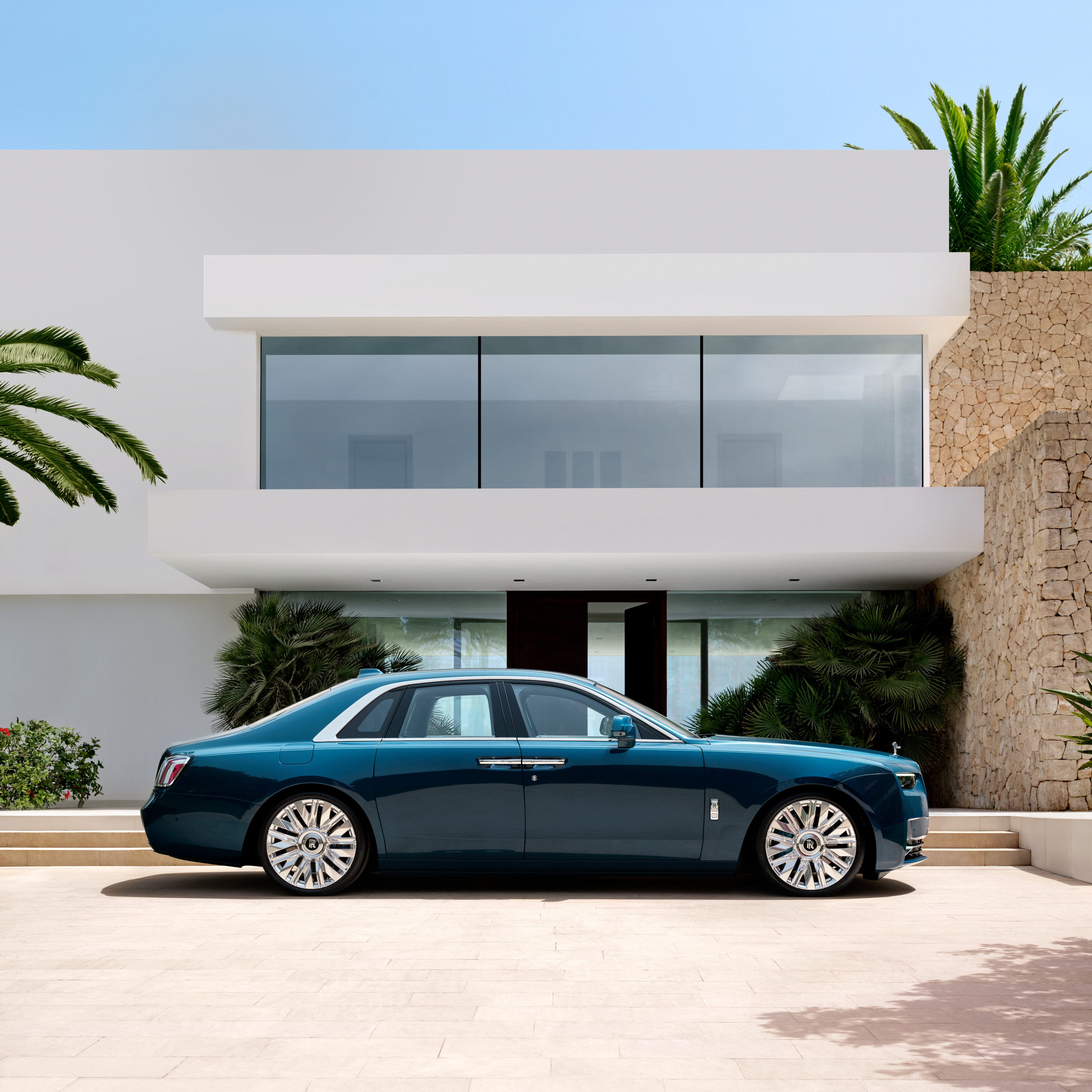
Rolls-Royce Ghost Series II
Ghost is the automotive equivalent of a first-rate Georgian townhouse, grand and imposing from the outside but still capable of concealing multitudes behind its tasteful façade.
A quick walk around the exterior in the subterranean environs of the Chateau's Renzo Piano pavilion revealed the ‘standard’ car's lightly tweaked styling front and rear. It’s more monolithic than before, with greater emphasis on the vertical surfaces and chamfered edges around the headlights and that famous radiator grille.
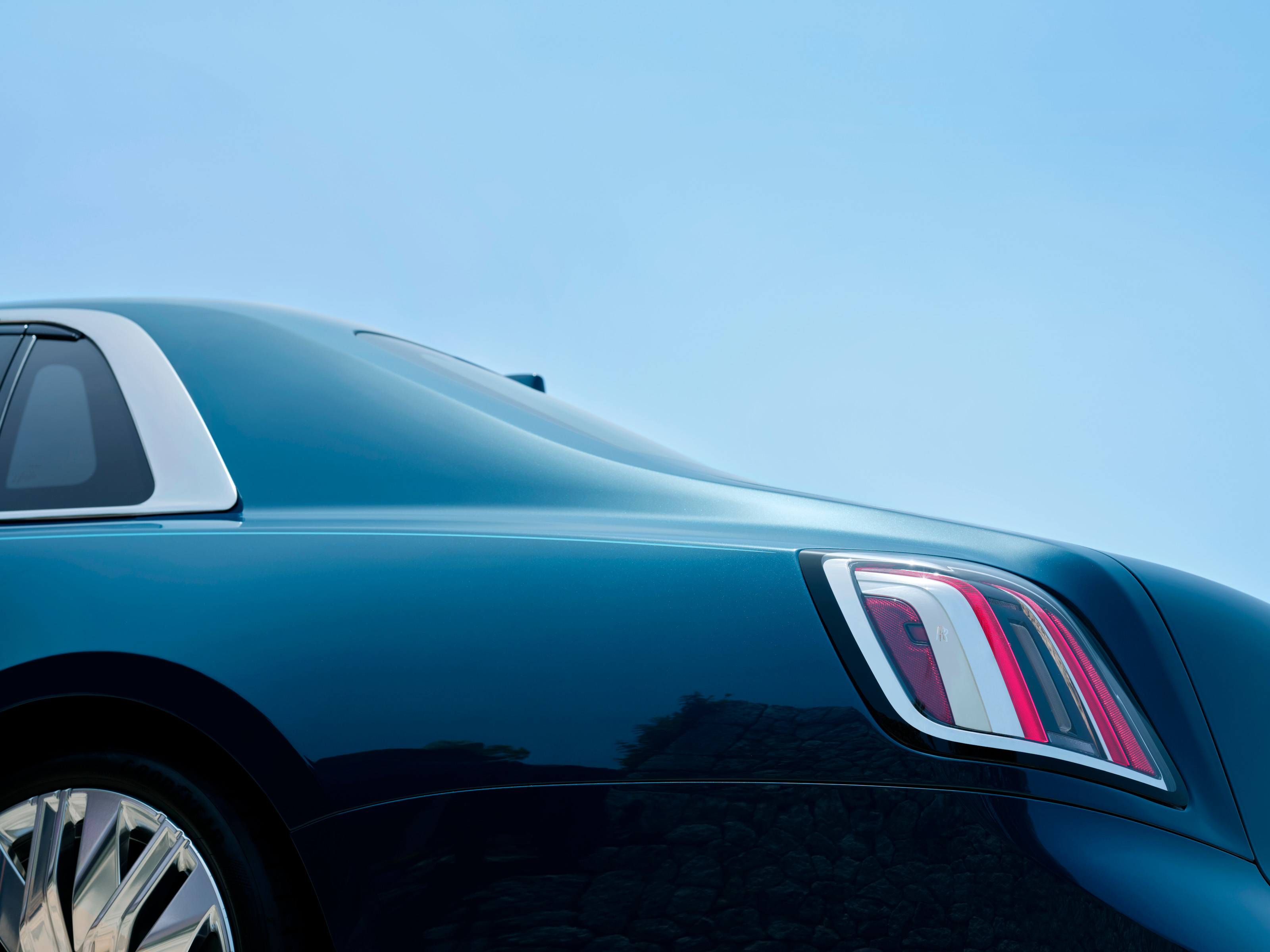
Rolls-Royce Ghost Series II
There’s a lot of nautical imagery going on, both on the car itself and on the surrounding mood boards. Thirties yachts and Riviera glamour are key touchpoints and you just know that the average Rolls-Royce customer considers themselves equally at home in both worlds. Finishing it all off is a hand-painted coachline running the length of the vehicle, setting off the proportions with the verve of a chef’s kiss.
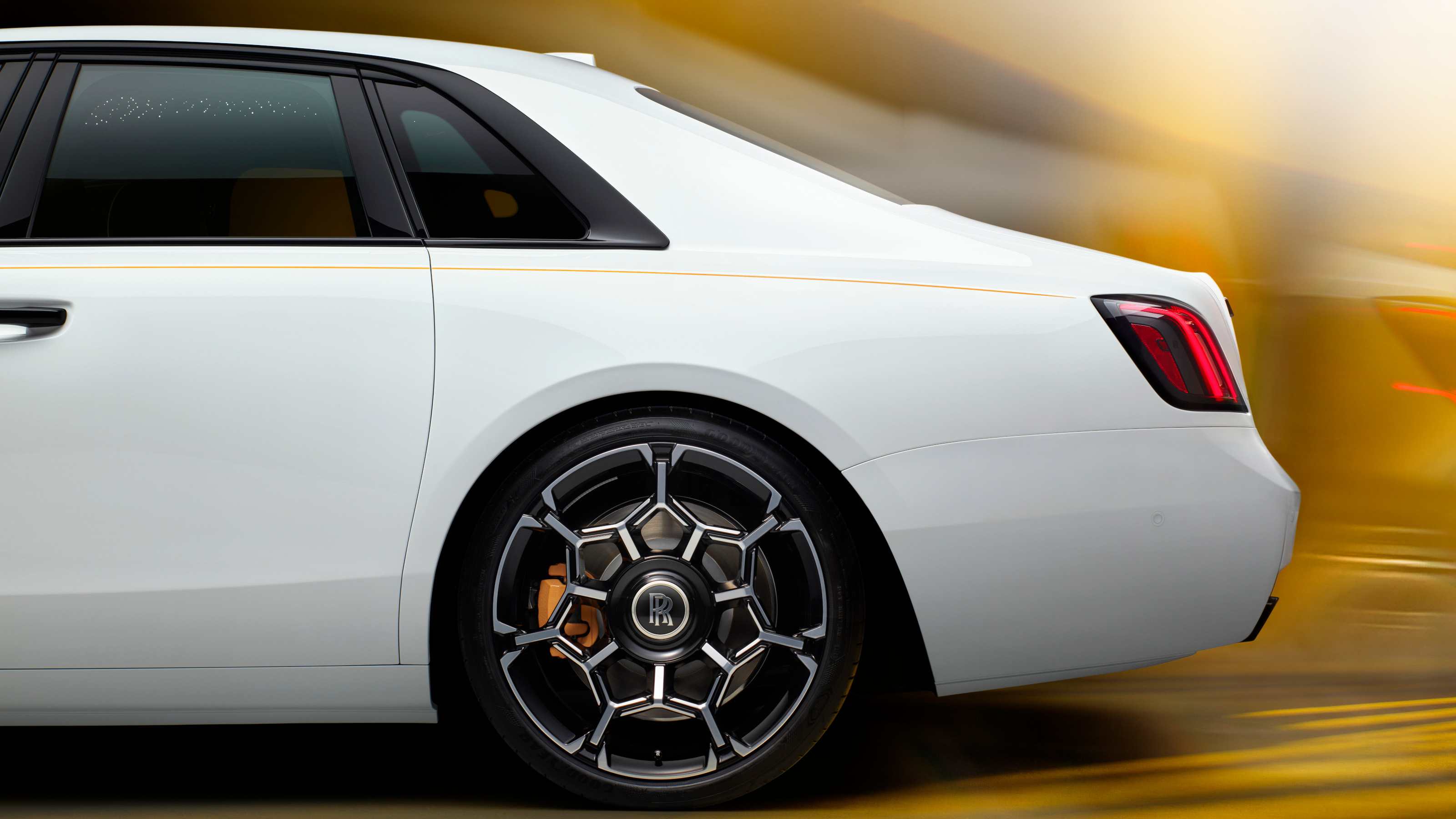
Rolls-Royce Ghost Series II Black Badge edition
Under the long, long bonnet is still a V12 and nothing more. Rolls doesn’t do hybrids, at least not yet, and the reason for sticking with tried and tested ICE is probably because of the countless thousands of hours that have gone into making this one of the most silent, refined and smooth driving experiences on the road. You’d barely know an engine was there at all, let alone one as large and powerful as a 6.75-litre V12.
Wallpaper* Newsletter
Receive our daily digest of inspiration, escapism and design stories from around the world direct to your inbox.
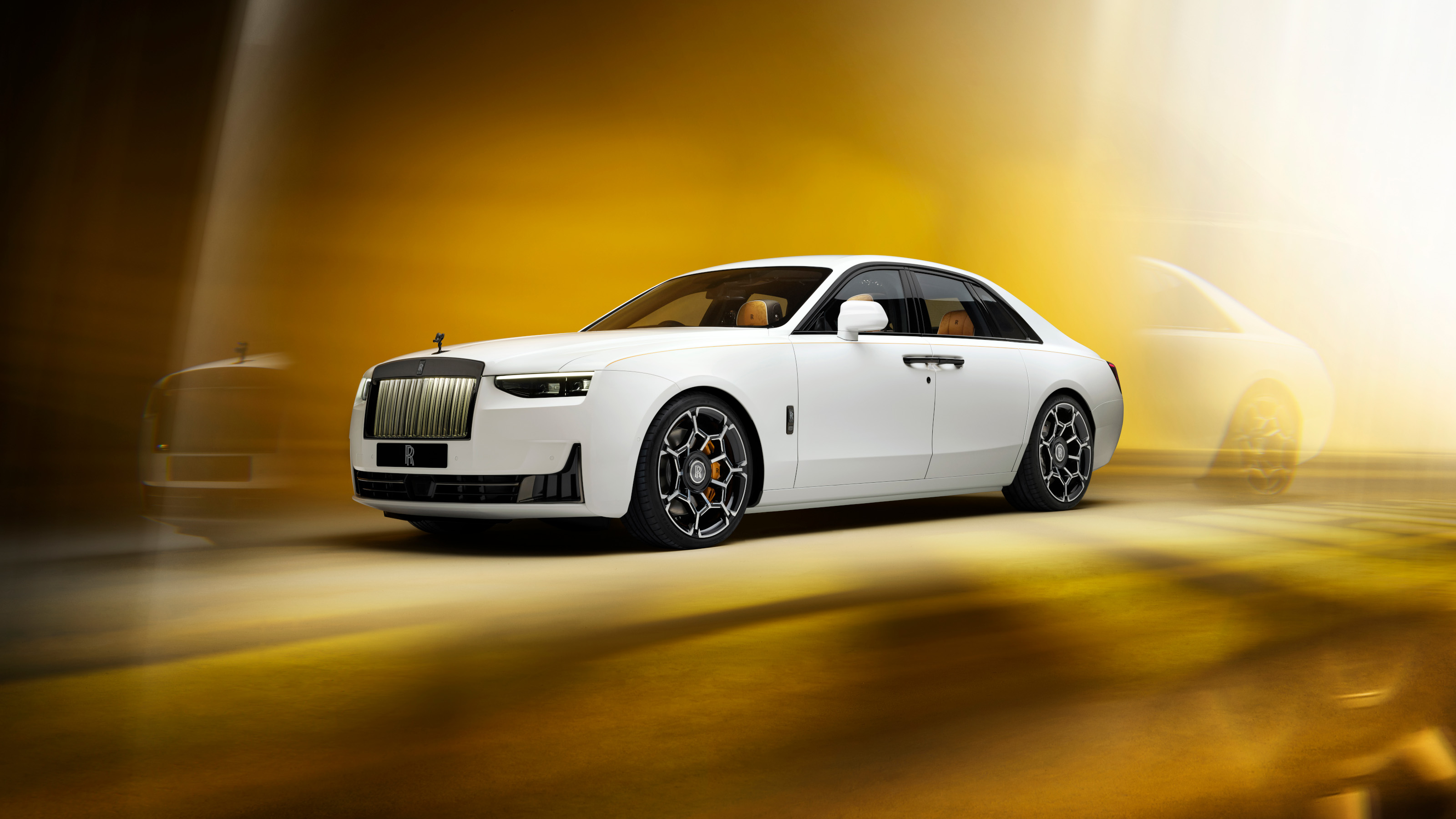
Rolls-Royce Ghost Series II Black Badge edition
As a counterpoint to the standard car, Rolls-Royce also gave us time in the ‘Black Badge’ model, a made-to-order version that scuffs up the polish just a tiny bit to give the car more snap and crackle. It’s hardly a sports car, but it is undeniably more sporting. There’s also the Ghost Extended Series II, with a 170mm longer wheelbase for taller tycoons, which Rolls claims ‘represents an even greater canvas for creativity.’
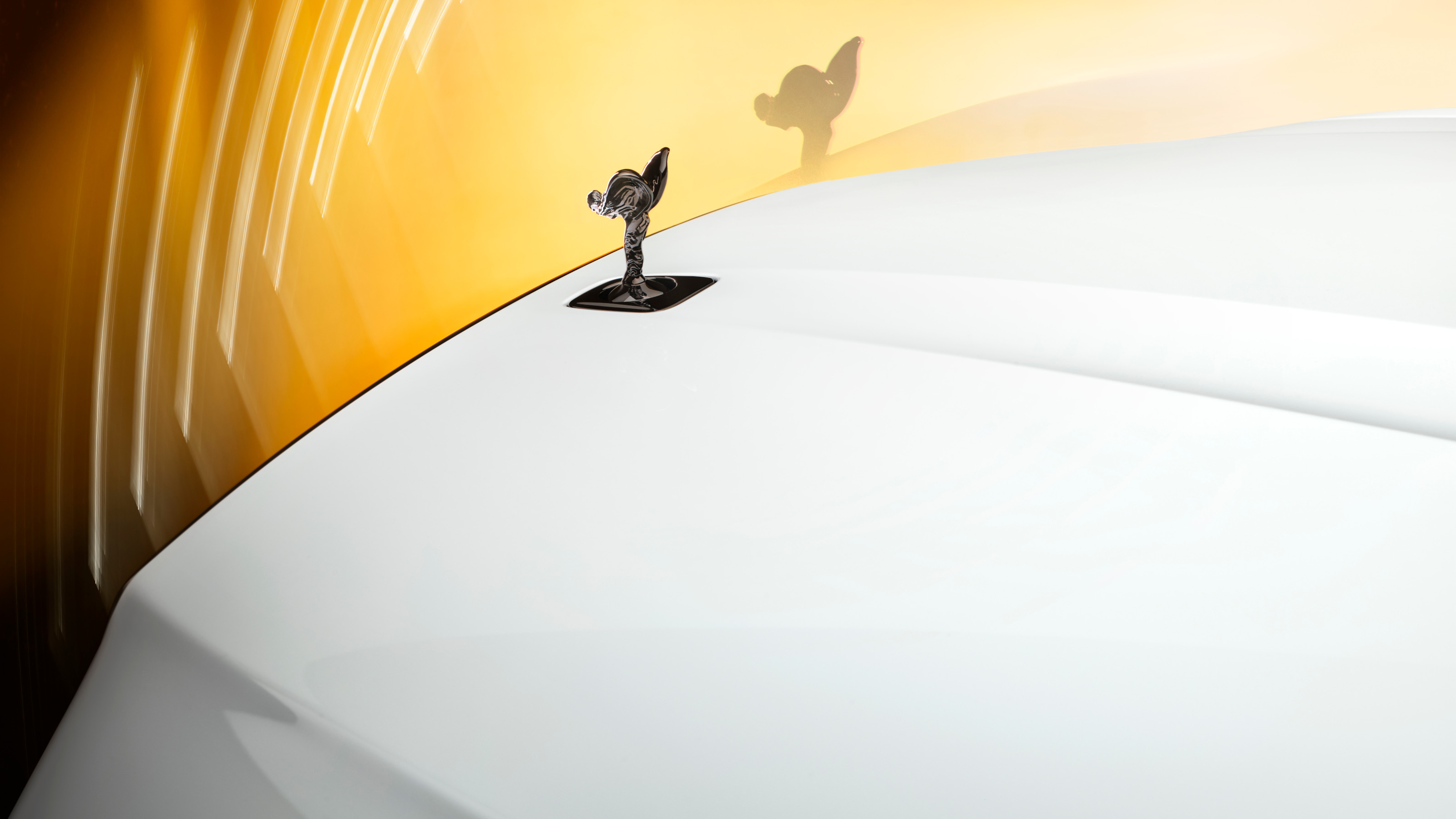
Rolls-Royce Ghost Series II Black Badge edition
It’s increasingly obvious that quiet and restrained have had their day
Ah, the creativity. It’s understood that you can specify your Rolls-Royce in any colour you like, inside and out. As Juliane Blasi, Head of Exterior Design, Rolls-Royce Motor Cars, explains, ‘our clients asked for a design that would provide a stage for their Bespoke colour and material choices, whether quiet and restrained or bold and expressive.’ It’s increasingly obvious that quiet and restrained have had their day.
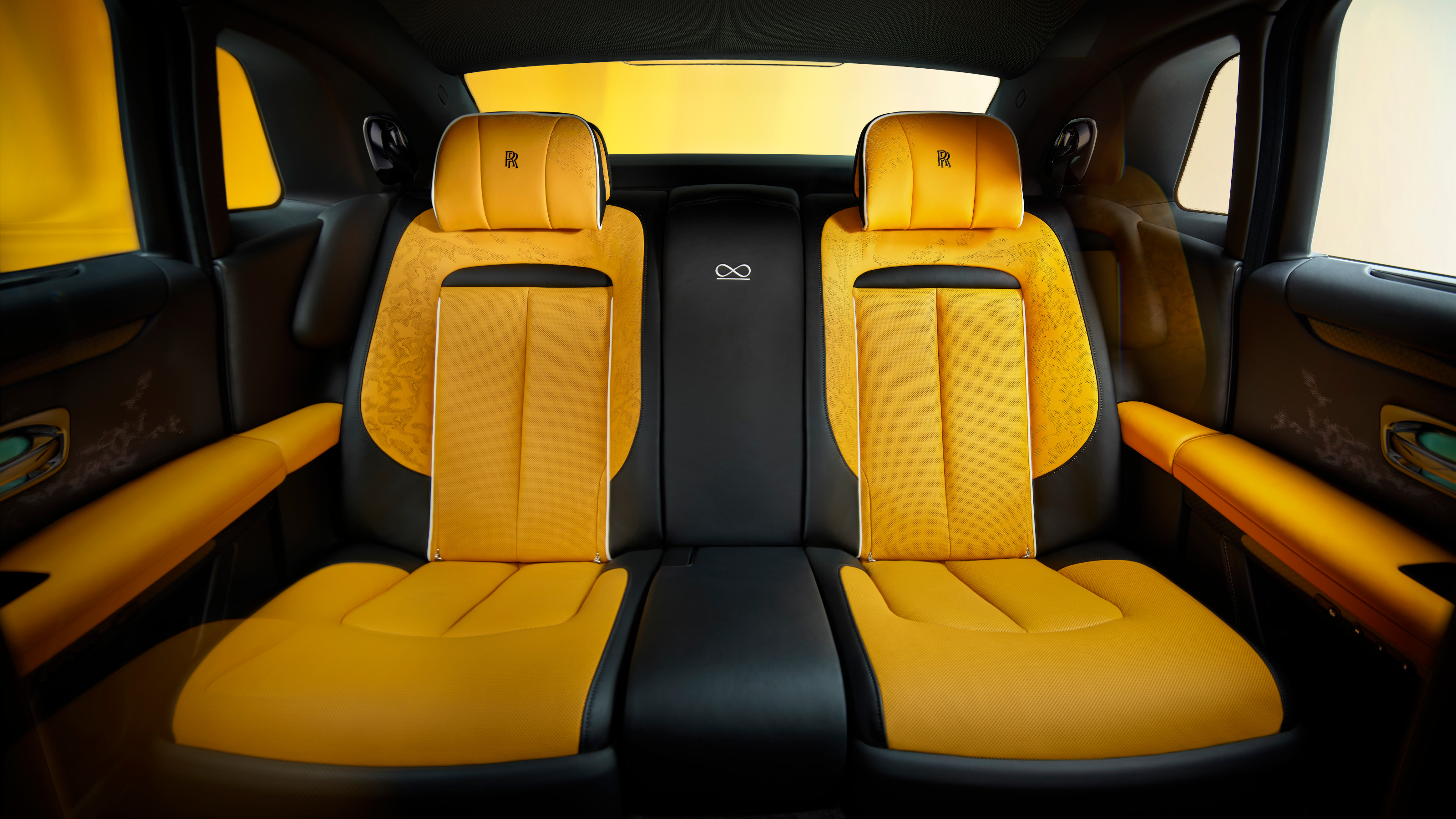
Inside the Rolls-Royce Ghost Series II Black Badge edition
As if to accommodate this sudden descent into bold expressionism, Rolls-Royce has started creating press cars that are just as outré as those specified by its more flamboyant customers. The zingy yellow and black interior of the Black Badge model or the fluoro blue detailing on the ‘Duality Twill’ optional cloth seating (both shown here) are just two examples of these ‘fearless and bright celebrations of colour’ that increasingly define the Rolls-Royce portfolio. That includes a colour palette of over 44,000 regular colours as well as the opportunity to colour match whatever you want, at a price.
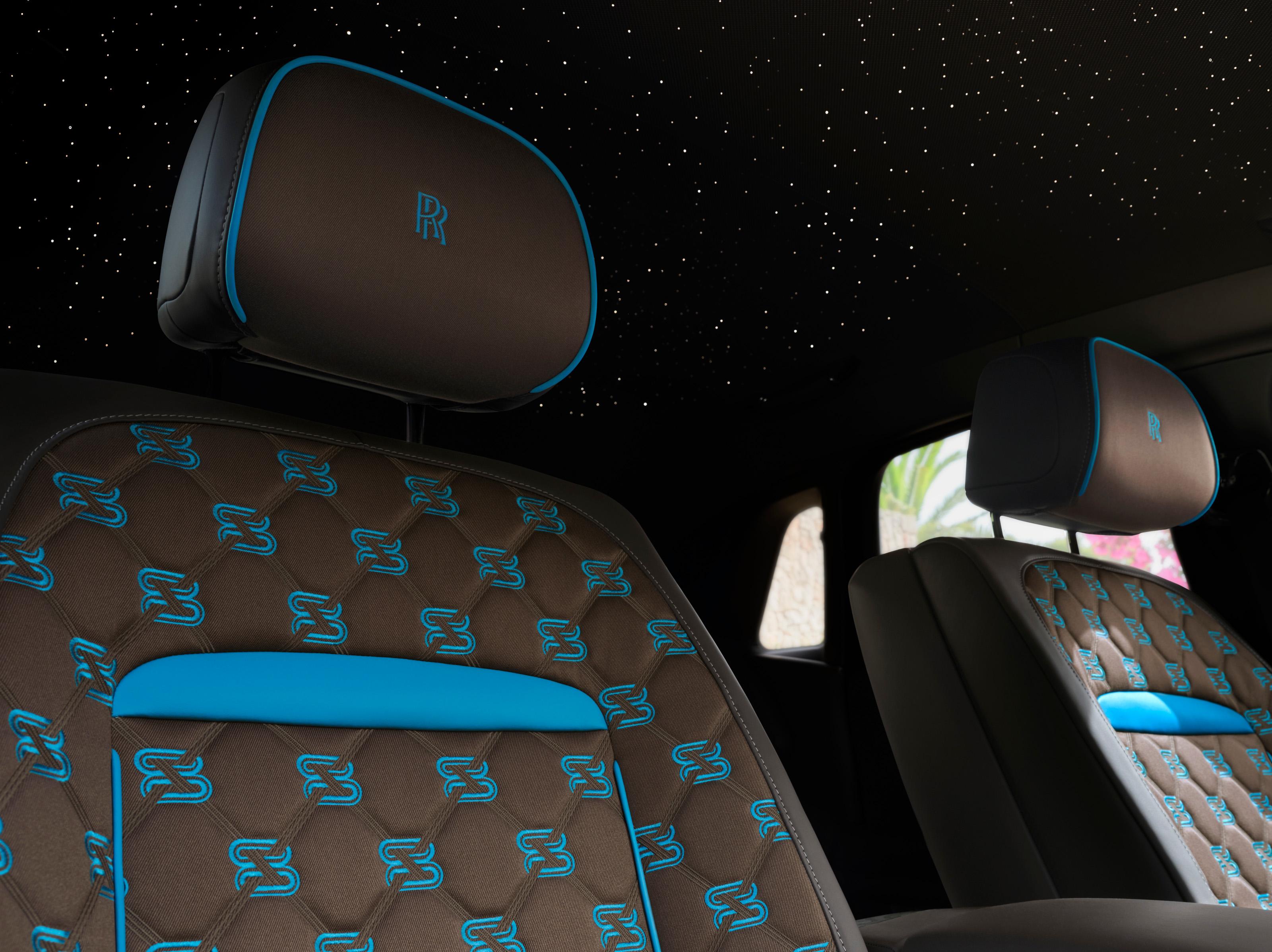
Rolls-Royce Ghost Series II Duality Twill upholstery
The hero press car debuted a new colour, a shimmery metallic named Mustique Blue. The finish incorporates glass and mica flakes to get its sparkle and draws on Rolls-Royce endlessly rich portfolio of prior eccentricities, in this case a lightweight 1929 Phantom II Continental prototype built for Henry Royce. It had an early form of pearlescent paint, made using ground fish scales.
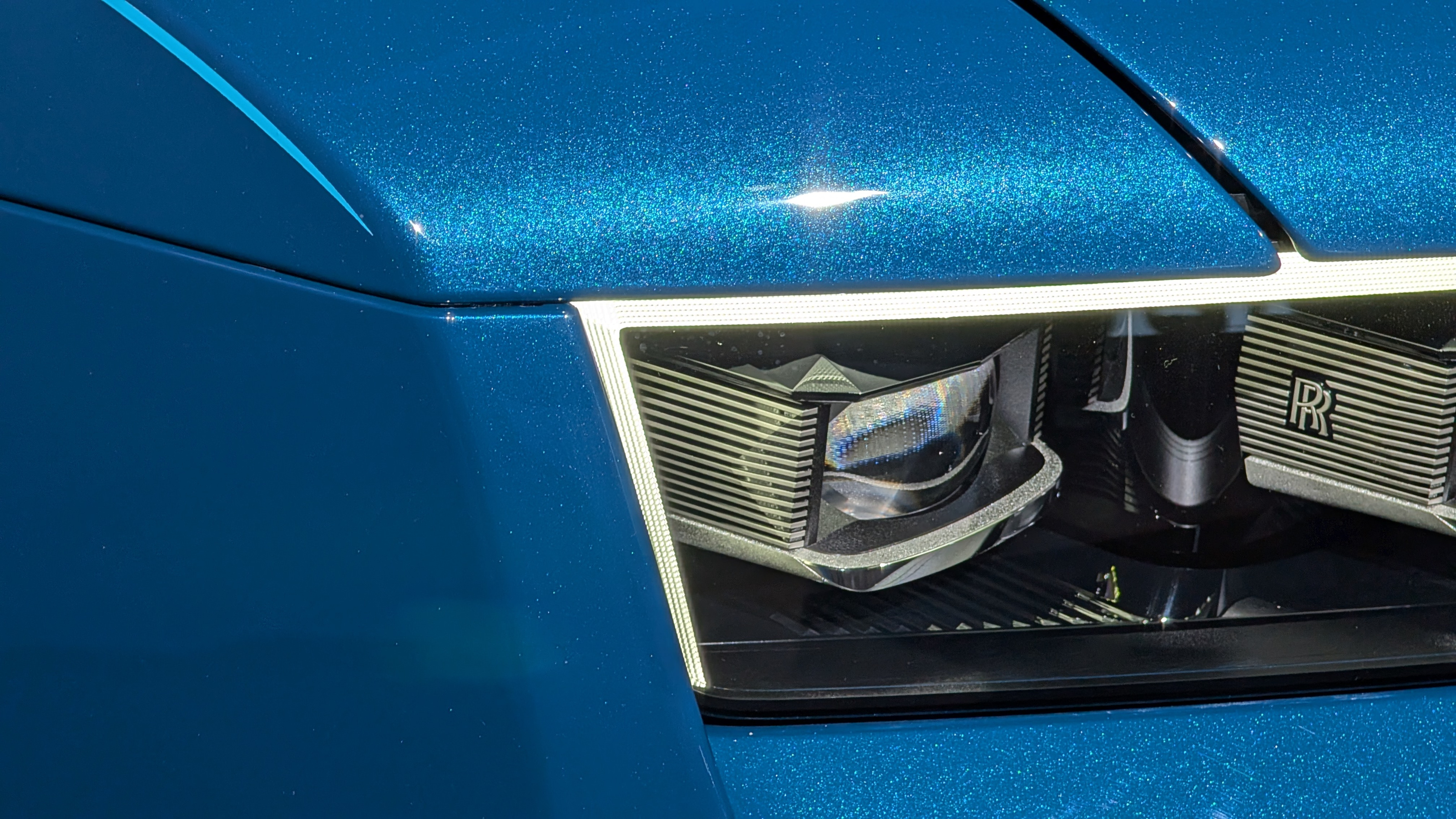
Rolls-Royce Ghost Series II in Mustique Blue
It's these little vignettes of wealthy eccentricity that define Rolls-Royce, inside and out. Where the Phantom has its in-dash ‘gallery’, the new Ghost has the Spirit of Ecstasy Clock Cabinet, a blend of Catholic icon kitsch and ultra-high-end interiors. You’ll also see extensive deployment of the Starlight Headliner across the Ghost range – once considered an extravagant optional extra but now so commonplace that it’s surprising to step into a Rolls-Royce without one. You can also have your own constellation of twinkling stars scattered across the dashboard with the upgraded Illuminated Fascia.
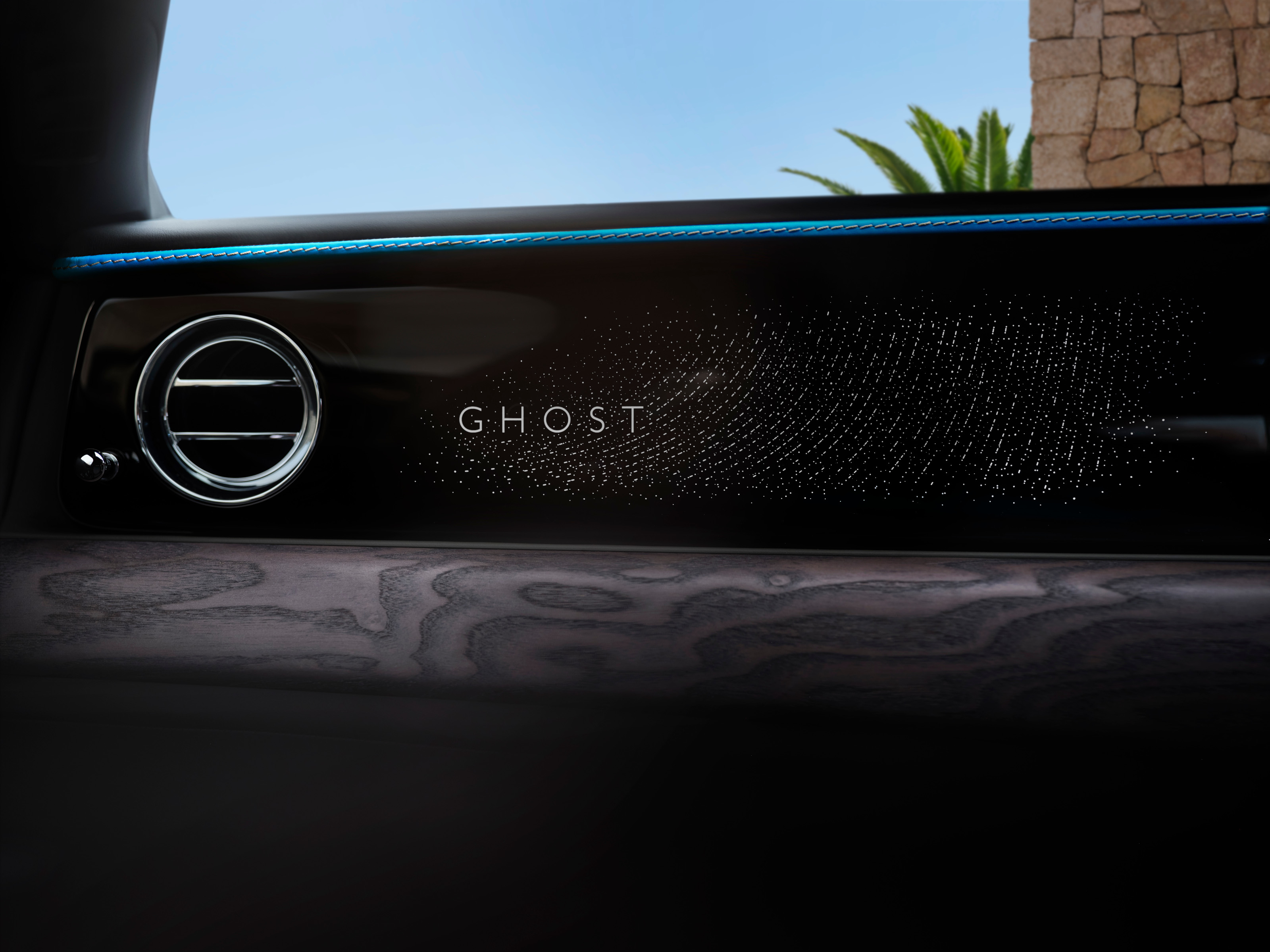
Illuminated Fascia in the Rolls-Royce Ghost Series II
Better connectivity now comes as standard, with twin rear screens that can receive independent media streams, and all the seat functions (heating, cooling, massage) can also be accessed via the interface. Up front, there’s direct integration with Whispers, the Rolls-Royce private members’ application, which presumably functions as a chatroom for the well-heeled. The soundproofing and vibration damping give the interior near-perfect acoustic properties for the multi-speaker sound system.
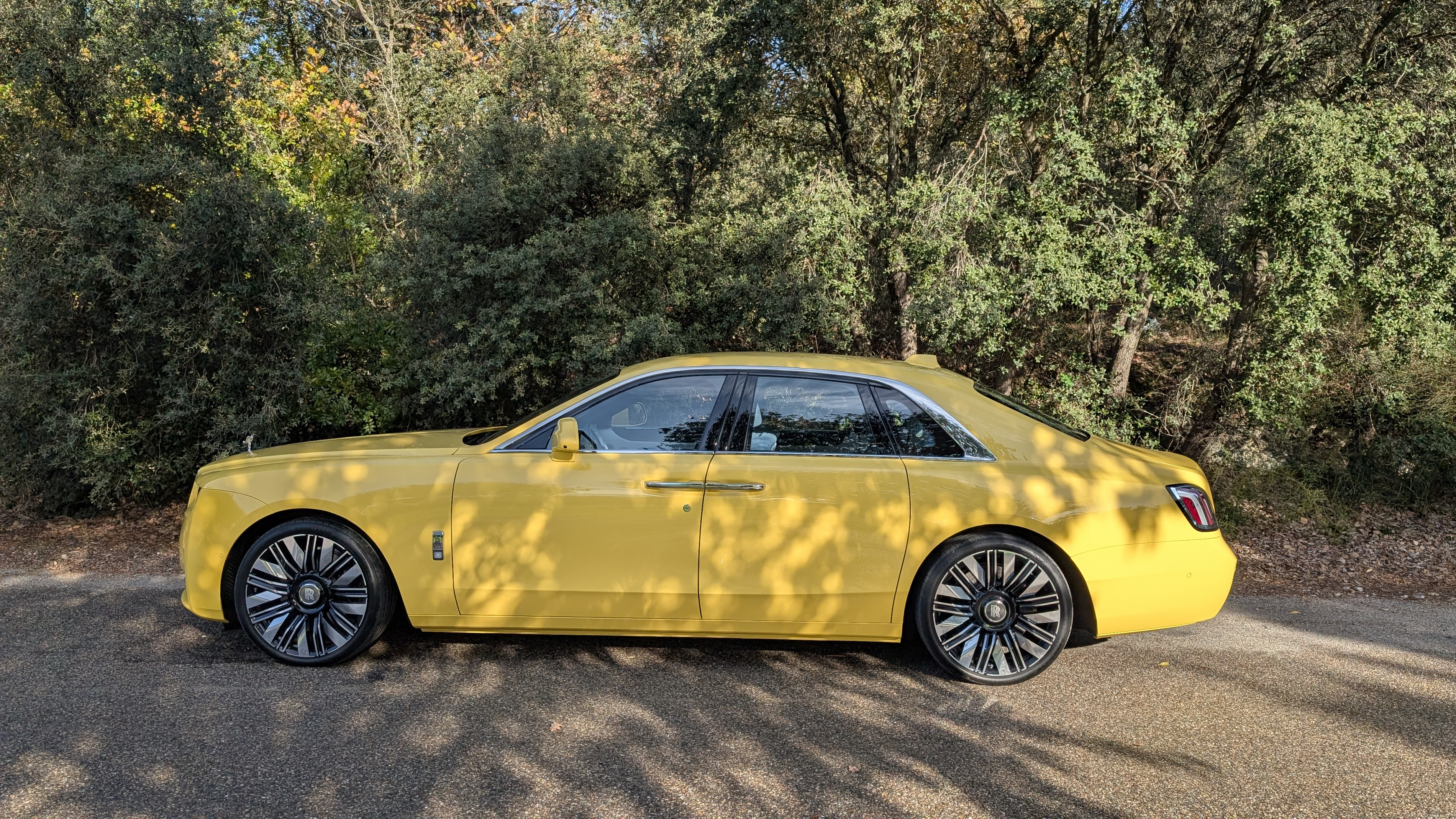
Rolls-Royce Ghost Series II
For fans of sybaritic statistics, the Duality Twill rayon fabric (made from bamboo) provides a talking point. Specify it, and you’ll have committed Rolls-Royce’s team to making 2.2 million stitches and use 11 miles of thread. The end result is still a little gauche when deployed with contrasting colours, but subtler schemes are also available. Leather seats can be patterned with a special perforation technique.
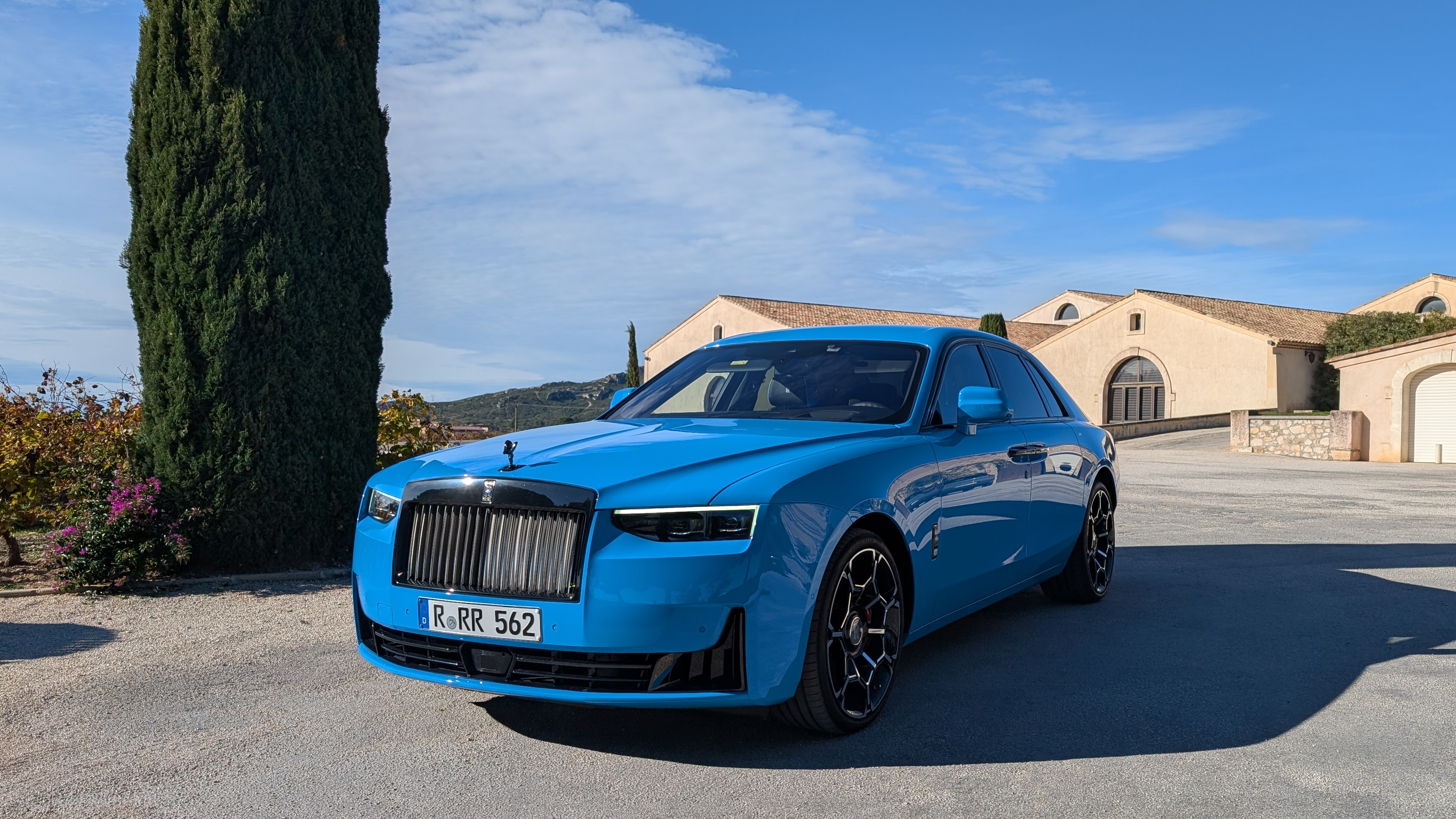
Rolls-Royce Ghost Series II
Inside Black Badge, things are even more dazzling. Along with carbon fibre elements (that most un-Rolls-Royce of materials) the inspiration is more Miami Vice than Art Basel, with white bodywork paired with acid-yellow leather inserts. Black Badge is undeniably more fun to drive, with a swifter throttle response, more grunt and less waft. If you employ a chauffeur, the enhancements probably aren’t worth it.
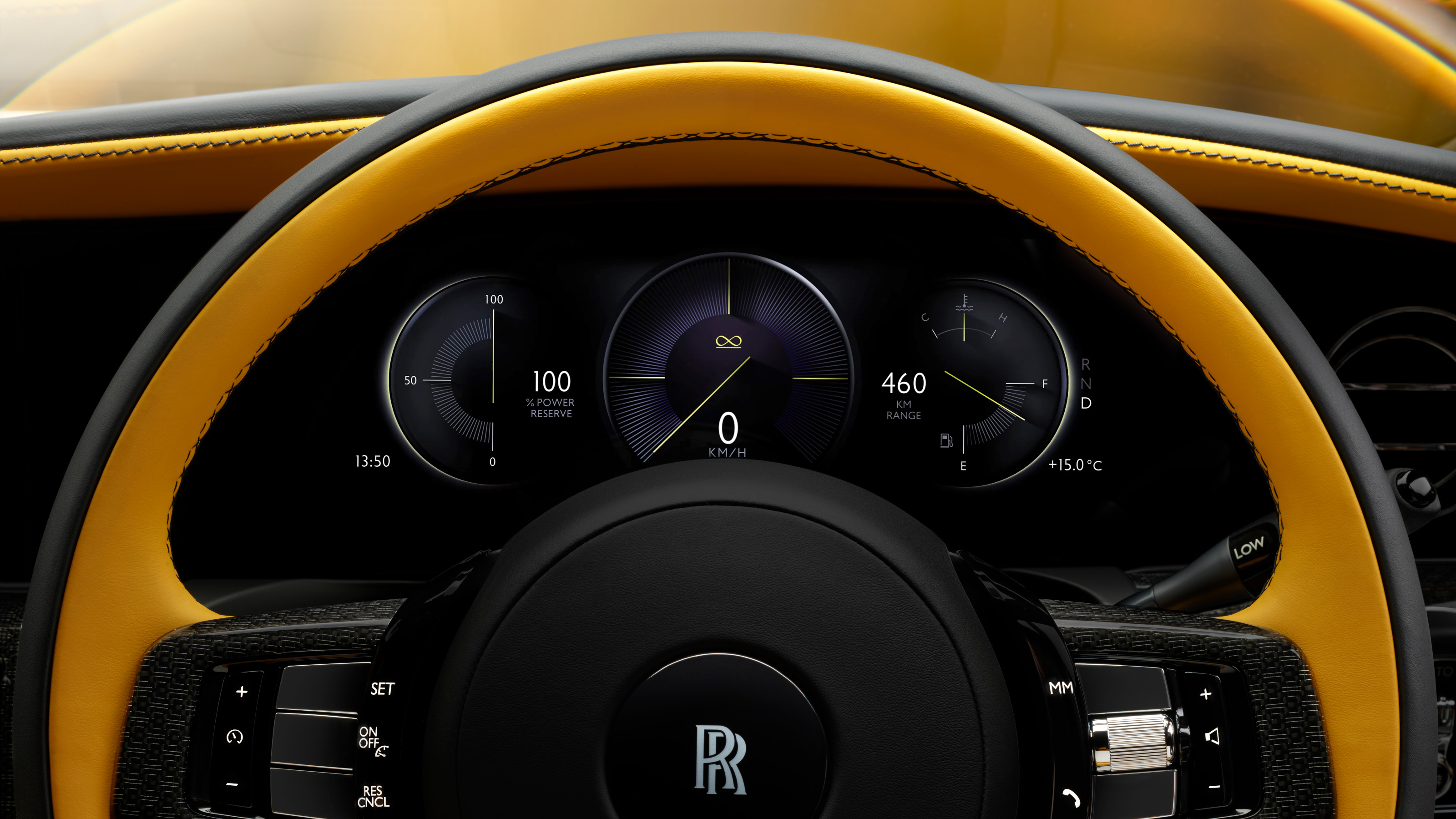
Inside the Rolls-Royce Ghost Series II Black Badge
Rolls-Royce has retained its crown as the first choice of royalty, whether their realm is a kingdom, industry or fandom. As wealth has evolved it has taken taste on a journey into the outer reaches of creativity. To its credit, Rolls-Royce has never shied away from keeping up, correctly surmising that modern-day Gatsbys are best kept close, lest they slip away to a competitor. Prices are unpublished and indulgence in expensive options is positively encouraged. Nevertheless, Ghost Series II should keep the wealthy sufficiently distracted until the next best thing comes along.
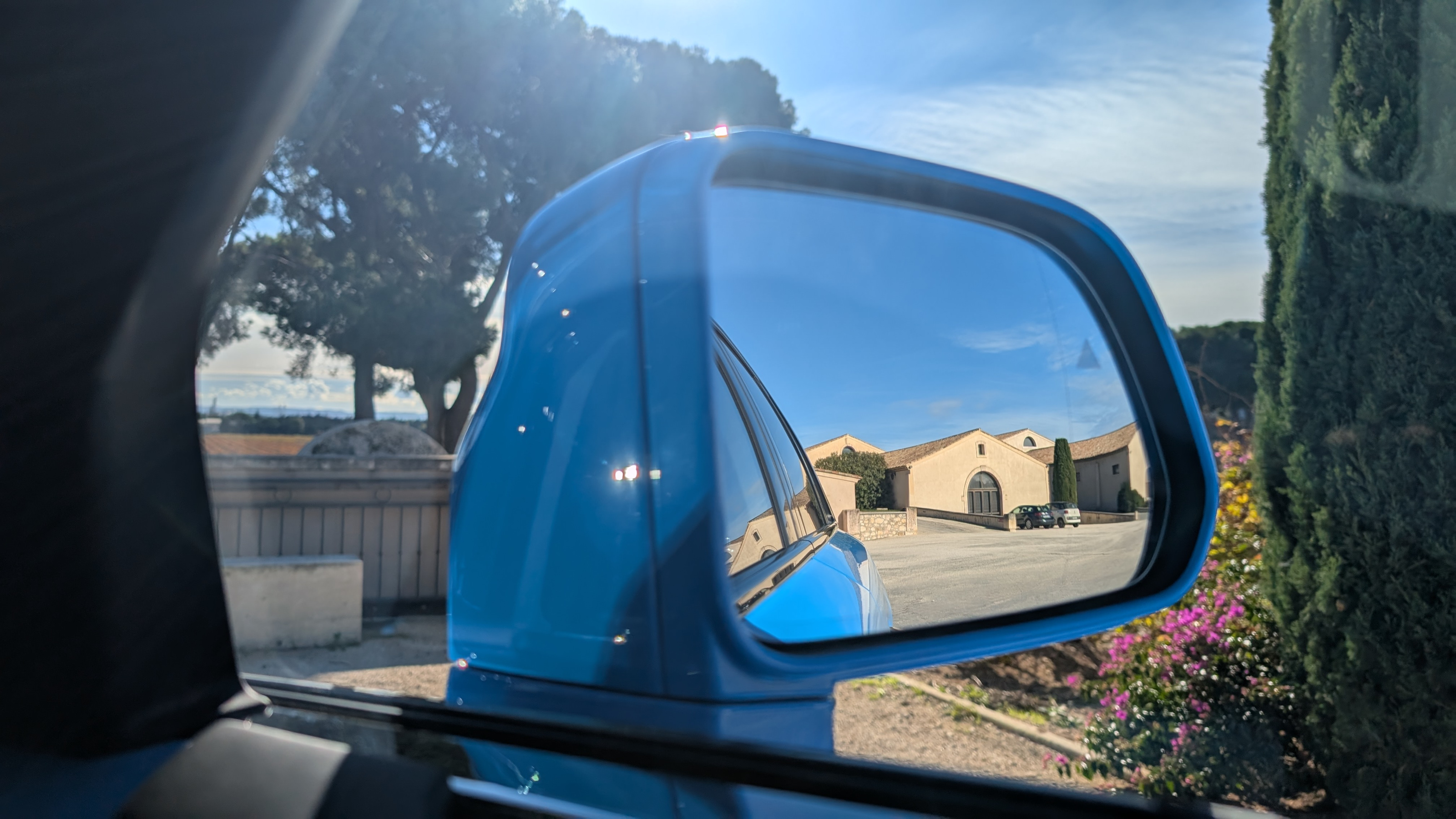
Rolls-Royce Ghost Series II
Rolls-Royce Ghost Series II, price on application, Rolls-RoyceMotorCars.com, @RollsRoyceCars
Jonathan Bell has written for Wallpaper* magazine since 1999, covering everything from architecture and transport design to books, tech and graphic design. He is now the magazine’s Transport and Technology Editor. Jonathan has written and edited 15 books, including Concept Car Design, 21st Century House, and The New Modern House. He is also the host of Wallpaper’s first podcast.
-
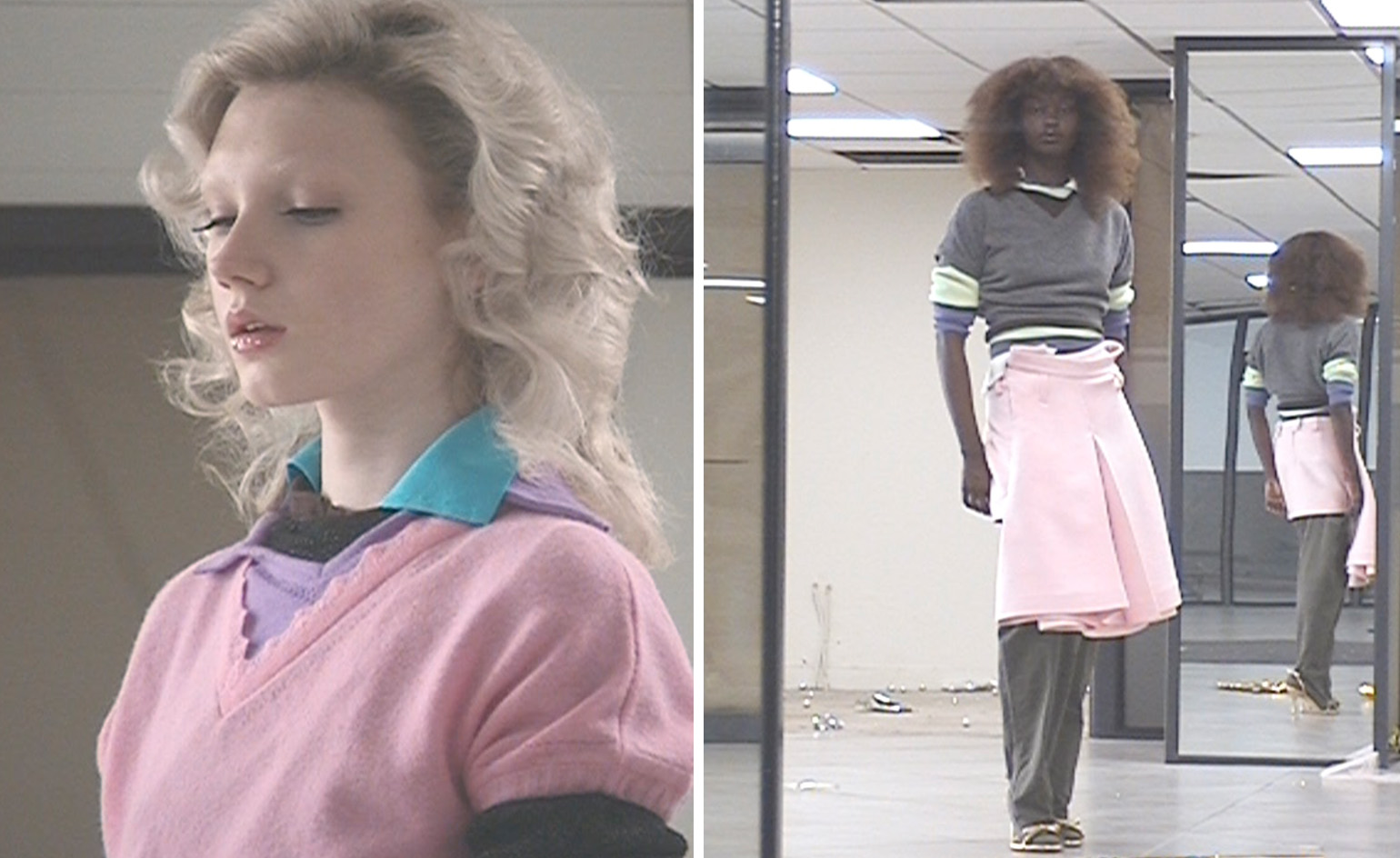 All-In is the Paris-based label making full-force fashion for main character dressing
All-In is the Paris-based label making full-force fashion for main character dressingPart of our monthly Uprising series, Wallpaper* meets Benjamin Barron and Bror August Vestbø of All-In, the LVMH Prize-nominated label which bases its collections on a riotous cast of characters – real and imagined
By Orla Brennan
-
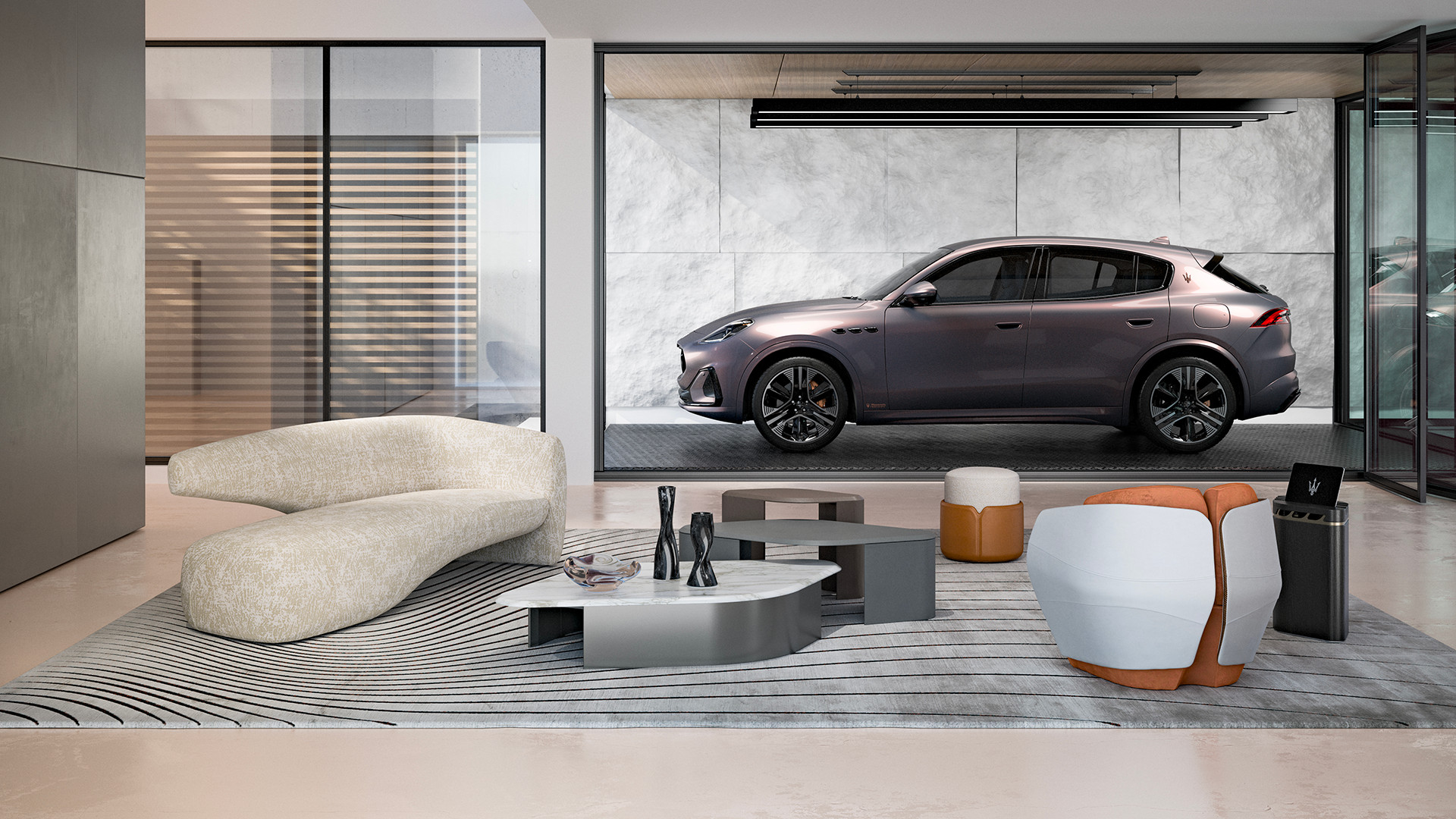 Maserati joins forces with Giorgetti for a turbo-charged relationship
Maserati joins forces with Giorgetti for a turbo-charged relationshipAnnouncing their marriage during Milan Design Week, the brands unveiled a collection, a car and a long term commitment
By Hugo Macdonald
-
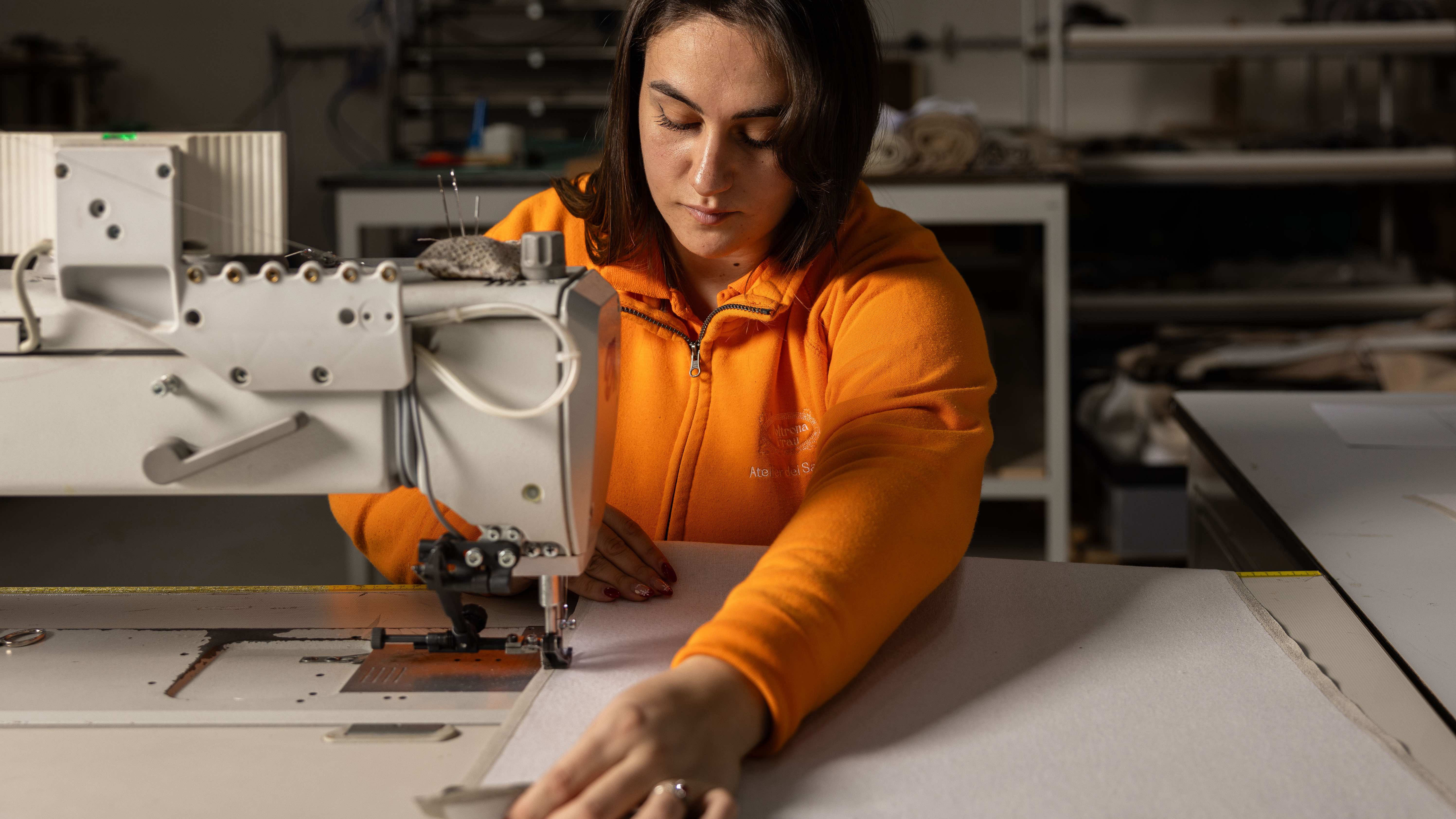 Through an innovative new training program, Poltrona Frau aims to safeguard Italian craft
Through an innovative new training program, Poltrona Frau aims to safeguard Italian craftThe heritage furniture manufacturer is training a new generation of leather artisans
By Cristina Kiran Piotti